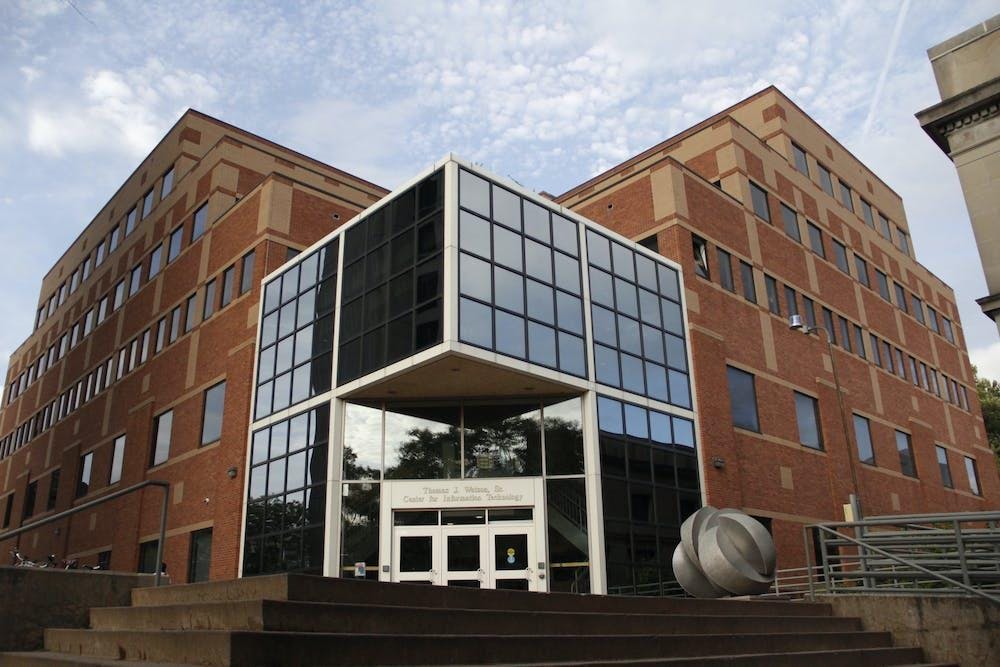Students at Brown and other colleges participated in Brown’s tenth annual Hack@Brown overnight hackathon this weekend.
Hack@Brown allows students “interested in software, hardware and design to collaborate in a sprint-like event, creating their own work and projects from scratch,” its website reads. Since 2014, coders participating in Hack@Brown have spent the weekend developing projects before presenting them to a panel of judges, according to Alexis Fry ’25, a co-director of Hack@Brown. Ayman Benjelloun Touimi ’25, the other co-director, noted that participants have the opportunity to compete and learn from mentors.
Fry and Benjelloun Touimi were chosen for their positions in April and have been planning the weekend since. Fry explained that in addition to the co-directors, the hackathon is organized by a group of 50 students who are divided into teams with specific focuses, such as sponsorship, design or development. This year, the organizers additionally collaborated with Brown University Women in Computer Science, as well as Mosaic+, an organization that supports students from underrepresented racial backgrounds with an interest in computer science at Brown, Fry said.
More than 1,000 students registered for the hackathon this year, 400 of whom were invited to participate, according to Benjelloun Touimi. Among the participants, 58% were first-time hackathon attendees. Unlike many other hackathons, Hack@Brown is open to first-year students and is not designed solely for advanced, competitive programmers, she added.
According to Benjelloun Touimi, making the hackathon accessible to students with less computer science experience is a major goal of the event. He added that he hopes participants “grow their skills and build something that they’re proud of.”
“It’s really about learning,” he said, emphasizing that he does not want the hackathon to be daunting to participants.
Fry pointed to the educational aspect of Hack@Brown, explaining that many students attend the panels that the hackathon offers rather than submitting a project for judging. This year, there were panels on artificial intelligence, machine learning and an overview of careers in the technology industry led by Brown alumni, she said.
In addition to panels, Hack@Brown also features workshops where students can learn new technical skills. Some workshop topics this year included Python, the Bloomberg Terminal and deep learning, according to Justin Shin ’25, a co-lead for the workshops team.
“As a CS major, I'm always trying to build my portfolio,” Hack@Brown participant Annie Ye ’26 said. “Hackathons are a great way to work with different people and create something that we can publish to the real world.”
Hack@Brown provides students with opportunities to learn from and build connections with one another,” Shin noted. “You meet people that you would never have the opportunity to meet outside of classes,” he said.
Hack@Brown allows students to enjoy building projects while simultaneously learning and taking risks, Fry said. “It's a really special experience that I think builds the confidence of computer science students, especially those who maybe are underrepresented in the industry.”
“Honestly, I feel kind of spoiled because they have so many cool events and so many sponsorships,” Ye said. “I learned a ton.”





